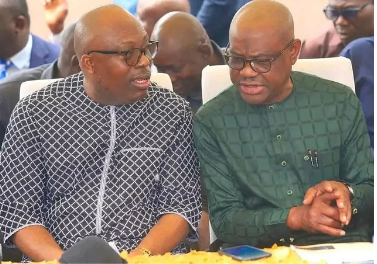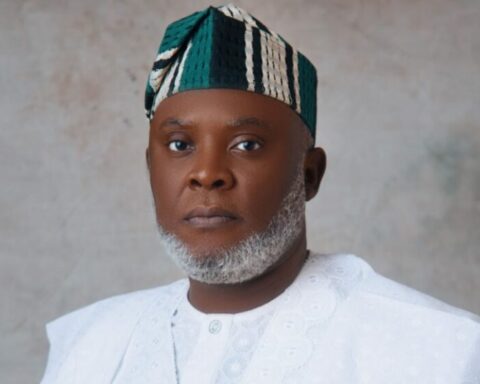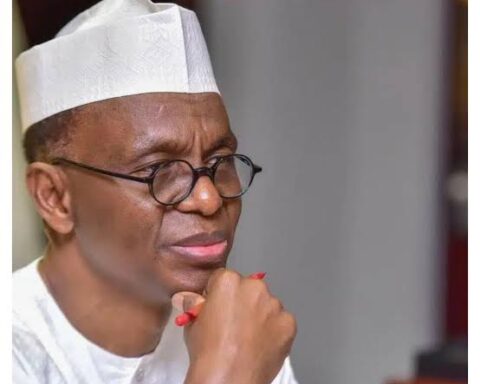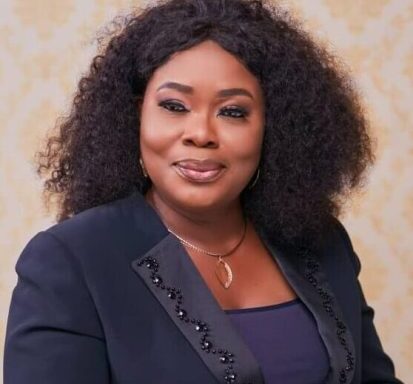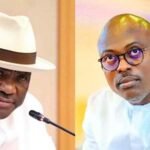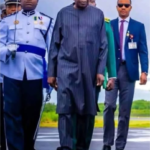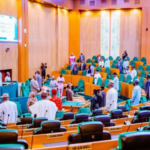By Agbeze Ireke Kalu Onuma, AI-KO
The protracted political crisis in Rivers State is a local power struggle and a metastasis that threatens Nigeria’s democratic integrity. What began as a familiar tale of godfatherism – where former Governor Nyesom Wike, now Federal Capital Territory Minister, installed Siminalayi Fubara as his successor – escalated into constitutional vandalism when President Bola Tinubu declared a state of emergency on March 18, 2025. Citing nebulous security threats and risks to oil infrastructure, Tinubu suspended Governor Fubara, his deputy, and the entire State Assembly, installing retired Vice Admiral Ibok-Ete Ibas as sole administrator. This executive overreach, justified under Section 305 of Nigeria’s Constitution, was a surgical strike against democratic norms, disproportionately targeting Rivers while ignoring more serious security crises in Zamfara, Katsina, the Northeast and the middle belt. The move reeked of political engineering: Wike, though nominally Peoples Democratic Party (PDP), had delivered Rivers to Tinubu’s All Progressives Congress (APC) in 2023 and now sits in the president’s cabinet. His feud with Fubara – once a loyal protégé – had paralyzed governance, with 27 pro-Wike lawmakers defecting to APC without losing seats (a constitutional travesty) and initiating impeachment proceedings.
Three months of emergency rule under Admiral Ibas proved a Trojan horse for consolidating Wike’s influence. The administrator stuffed key agencies like the Rivers State Independent Electoral Commission (RSIEC) with Wike loyalists while sidelining elected officials . When Tinubu finally convened a “reconciliation summit” on June 26 at the Presidential Villa, the stage was set not for restoring democracy but for codifying its suspension. The resulting agreement – brokered behind closed doors with Fubara, Wike, and pro-Wike Speaker Martin Amaewhule – imposed four grotesque conditions for Fubara’s reinstatement: First, he must serve as a lame-duck governor barred from 2027 re-election; second, Wike would handpick all 23 Local Government chairpersons, seizing grassroots patronage; third, Fubara must pay outstanding allowances to the defecting lawmakers who tried to oust him; and fourth, those same legislators pledged not to revive impeachment proceedings. This was less a peace pact than a ransom note. As I dissect these terms, the dissonance is staggering: Tinubu, ostensibly mediating as national leader, acted as Wike’s enforcer, reducing the governorship to a vassalage contract. The choreographed handshakes and smiles at Aso Rock, followed by a joint appearance at Wike’s hometown funeral, were Orwellian theater masking a conquest.
The democratic corrosion here operates on multiple levels. Popular sovereignty is eviscerated when 3.5 million Rivers voters see their mandate bargained away in Abuja backrooms. Fubara’s surrender of LGA control to Wike nullifies local autonomy, converting elected offices into tokens in a patronage game. Separation of powers collapses when legislators trade constitutional oversight for financial payoffs (those “outstanding allowances”), transforming impeachment from a check on executive abuse into extortion leverage. Federalism withers as Tinubu – leveraging emergency powers – imposes term limits on a state governor, a move with no constitutional basis. The symbolism is chilling: Fubara attended the Villa meeting alone, while Wike arrived flanked by lawmakers and allies. As former Commissioner Leloonu Nwibubasa lamented, this was “surrender, not reconciliation” – a ritual humiliation confirming Wike as Rivers’ de facto ruler.
Civil society voices amplify my unease. The Rivers Emancipation Movement condemns the deal as a “hollow, self-serving political arrangement” that sacrifices public will for elite convenience . Human rights activist Deji Adeyanju, noting Wike’s history of betrayed alliances, warns this “truce” is a trap: “Governor Fubara must prepare his mind that Wike will not only undermine him now but will breach the agreement on purpose” . Even Ijaw leader Joseph Ambakederimo, while praising Tinubu’s effort, demands unconditional restoration of democratic institutions. Their skepticism is warranted. This crisis has already birthed ominous parallels: the resurgence of pipeline sabotage evokes Niger Delta militancy’s darkest days, while Tinubu’s suspension of elected officials mirrors the 1962 emergency in Nigeria’s Western Region – a prelude to the First Republic’s collapse.
The long-term implications for Nigeria’s democracy are dire. By endorsing Wike’s stranglehold over Rivers until 2031 (via LGA control and succession rights), Tinubu normalizes a template for subverting electoral mandates nationwide . Opposition governors will face intensified blackmail, knowing Abuja may suspend them to impose favorable terms. Voter apathy, already fed by widespread belief that “elections are a formality” (58% per CDD-West Africa), will deepen as citizens see mandates erased by presidential diktat. Crucially, the ethnic tinderbox remains alive: the Ijaw majority perceives Fubara’s treatment as an assault on their political voice, risking a return to the militancy that once crippled the Niger Delta.
This protracted political crisis in Rivers State, transcends a mere power struggle; it epitomizes the systemic decay gnawing at Nigeria’s democratic foundations. Beneath the orchestrated handshakes and declarations of peace at Aso Rock lies a calculated coercion, one that exposes the rot festering within Nigeria’s political architecture. The agreement, forged in late-night talks on June 26, 2025 was not reconciliation; it was a capitulation disguised as compromise, reducing the governor to a ceremonial figurehead while real power – the machinery of grassroots patronage, revenue control, and electoral influence – remained firmly in the hands of his predecessor, now FCT Minister. As one presidency insider bluntly conceded, “Wike is the real winner here”.
The photograph of Nyesom Wike and Siminalayi Fubara seated side by side at a funeral in Rumueprikom, barely days after the so-called peace accord brokered by President Bola Tinubu in Abuja, has elicited deep unease in me and many others. This image – now widely circulated – does more than capture a moment of shared grief; it lays bare the grand performance of political actors who continue to trivialize democratic integrity under the guise of reconciliation. It is a moment designed for optics, curated to simulate cohesion, but in reality, it cloaks the deeper fractures that afflict Rivers State’s political and institutional life.
I viewed the image with a heavy heart. It struck me as surreal that while the state reels from legislative paralysis, suspended democratic institutions, and rising socioeconomic despair, the same political elite who orchestrated the crisis are now shoulder to shoulder at a funeral, parading unity as though nothing happened. It is not that they cannot attend the same public event – Rivers is, after all, their shared home – but it is the choreography of this appearance, the symbolism of their posture and the deliberate inclusion of other suspended actors such as Martin Amaewhule, that grates.
To the casual observer, this might seem like progress. But for those of us who have followed this saga closely – from Fubara’s solitary resistance against the heavy machinery of federal-backed coercion to the backroom deals that led to his conditional reinstatement – this image is not reassurance. It is an insult. It depicts not a healed political rift but the burial of public accountability, with the people of Rivers cast in the role of silent mourners.
What exactly are we being asked to believe? That months of bitter confrontation, public accusations, and legal manipulations can be resolved over a handshake at a funeral? That the machinations which saw the legislature suspended, the executive neutered, and the local government elections postponed indefinitely are somehow now behind us because of a single, curated outing?
No one is talking about the actual victims of this saga – the people. The fisherwomen in Andoni still have to navigate broken supply chains without assistance. Civil servants in Oyigbo continue working without salary arrears addressed. The millions living below the poverty line – the same people politicians claim to speak for – are being asked to clap for this performance, to embrace this farce as democratic evolution. It is these people, not the political class, who must wait for development, who must queue for hours at government hospitals, who must fend off the daily indignities of failed governance.
The more I examine this sequence of events, the clearer it becomes that this has never been about Rivers people. It has always been about control: control of the levers of power, of grassroots structures, of state allocations and federal appointments. The presidentially brokered deal – which includes Fubara’s purported agreement to forgo 2027 ambitions, surrender local government appointments to Wike’s influence, and indemnify the same legislators who hounded him – is less a reconciliation and more a recalibration of internal elite arrangements. It is transactional politics dressed up as resolution. And this image – this seemingly benign photograph – is its most insidious manifestation.
I know many of us have stopped expecting integrity from those in power. But that resignation is not benign – it corrodes democracy. It transforms us from citizens into spectators, from voters into background actors in a script we cannot rewrite. By accepting these outcomes passively, we legitimize the idea that elections can be undone by presidential fiat, that assemblies can be rendered mute by executive proclamation, and that peace can be restored through the mere alignment of personal interests.
And yet, it is not too late for us to resist this illusion. We must refuse to be lulled by public displays of unity that mask deeper dysfunction. We must insist on a proper reinstitution of legislative and electoral processes, and more urgently, we must demand that governance – real governance, not theatrics – returns to the front of the agenda. Governance that responds to the erosion of public education, that addresses the criminal neglect of primary healthcare, that provides security for traders and children alike. This is not a rhetorical call – it is a cry for survival.
I am tired of funerals doubling as reconciliatory banquets. I am tired of watching service delivery die while politicians toast over symbolic unity. I am tired of elaborate political stagings meant to pacify us while the state falls deeper into an administrative coma.
This image may have been meant to convey peace, but what I see is the triumph of elite consensus over democratic ideals. It is a mirror held up to our collective resignation – and a challenge to our political imagination. The only real peace will come when the Rivers people – not just its politicians – are restored to the center of the conversation. Until then, this photo is not a sign of healing; it is a watermark of everything that remains broken.
To grasp the full depravity of this arrangement, one must dissect the complex interplay of ambition, institutional sabotage, and federal complicity that brought us here. Wike’s refusal to relinquish control after installing Fubara as his successor ignited the crisis, but Tinubu’s intervention – ostensibly to restore order – became the catalyst for its constitutional perversion. The president’s March 2025 declaration of a state of emergency, suspending Fubara and the assembly while installing sole administrator Vice Admiral Ibok-Ete Ibas, was weaponized not merely to address security concerns but to create a vacuum Wike could fill. During this interregnum, Wike loyalists were embedded in critical agencies like the Rivers State Independent Electoral Commission (RSIEC), ensuring his grip would outlast the emergency period . Tinubu’s subsequent “peace” deal thus institutionalized this takeover, leveraging federal might to annul the mandate of Rivers’ 3.5 million voters and reward the defection of 27 lawmakers – an act the constitution explicitly voids their seats for. This mirrors historical patterns of godfatherism, from Andy Uba’s ouster in Anambra to Lamidi Adedibu’s stranglehold over Oyo governors, yet it is distinguished by presidential sanction, setting a template for future subversions nationwide.
The public reception of this deal reveals a landscape fractured by cynicism, fury, and resigned despair. Among Fubara’s supporters, schisms are stark. Former Commissioner Leloonu Nwibubasa lambasted the governor’s solitary appearance at the Villa talks as proof of surrender: “Wike went with his entire army… Fubara walked alone. This was not reconciliation; it was a ritual of humiliation” . The Rivers Emancipation Movement condemned it as a “hollow, self-serving political arrangement” sacrificing public interest for elite appeasement, while human rights activist Deji Adeyanju as earlier stated, warned that Wike’s history of betrayal renders the truce a “trap, not a truce” . For ordinary citizens, the suspension of local democracy is visceral. Market women in Port Harcourt fear Wike’s LGA control will install “thugs who tax us to starvation,” while youth groups warn that dismantling grassroots representation fuels disillusionment with electoral politics altogether . In corporate boardrooms, anxiety simmers – investors halted projects during the crisis, and Shell’s divestment from onshore assets underscores fears that political instability jeopardizes the Niger Delta’s economic lifeline . Yet, Tinubu’s allies and Fubara’s aide, Jerry Omatsogunwa, frame the deal as “necessary stability,” pleading for acceptance to “restart development”. This dissonance – elite relief versus popular outrage – mirrors Nigeria’s broader democratic disconnect, where 58% of citizens already view elections as “mere formalities”.
The consequences unfolding from this immoral opera extend far beyond Rivers, threatening to metastasize across Nigeria’s political ecosystem. Immediate instability looms large. Given Wike’s record of betraying allies – from Peter Odili to Goodluck Jonathan – Adeyanju’s warning that he “will breach the agreement on purpose” to provoke Fubara into missteps is plausible. Should Fubara resist Wike’s LGA nominations or withhold payments to lawmakers, impeachment threats could resurface, potentially reigniting street violence and pipeline vandalism by marginalized Ijaw youth groups, echoing the militancy that once crippled the region . Regionally, South-South governors now face heightened extortion. Godfathers in Edo, Akwa Ibom, and Bayelsa may demand similar concessions – ceding control of resources or appointments – under threat of impeachment or even Tinubu-style federal suspensions. The recent mass defection of Delta State’s PDP leadership to the APC, including Governor Sheriff Oborevwori, underscores how the Rivers template incentivizes opportunistic realignments for survival, further eroding opposition strongholds. Nationally, Tinubu’s weaponization of Section 305 emergency powers – intended for existential threats like insurrection – to settle a political feud sets a catastrophic precedent.
As Dr. Hussaini Abdu argues, it signals that any governor opposing federal or godfather interests risks suspension on spurious grounds, with reinstatement conditional on personal and political surrender. This accelerates Nigeria’s slide toward a de facto one-party state, where the APC, already absorbing opposition governors like Oborevwori, monopolizes power. As political analyst Akinola Ayobami warns, such a system “erodes accountability, fuels corruption, and deepens poverty” by dismantling checks on executive overreach.
Parallels to global democratic backsliding underscore the rot’s universality. In Maharashtra, India, Prime Minister Modi’s BJP orchestrated a 2022 coup by engineering defections from the Shiv Sena party, toppling elected Chief Minister Uddhav Thackeray – mirroring Wike’s use of renegade lawmakers to undermine Fubara. In Honduras, the 2009 U.S.-backed ouster of President Manuel Zelaya, justified by elites as “constitutional,” previewed Tinubu’s suspension of Fubara under similarly dubious legal pretenses. Even domestically, Lagos offers a cautionary tale: Tinubu himself, as “godfather,” has controlled successive governors through LGA proxies and “advisory” roles, proving that economic powerhouses succumb to patronage networks when institutions are hollow.
In living rooms, streets, and markets across Rivers, a grim realization sets in: democracy has been bartered away. The electorate’s fury simmers not merely at Fubara’s emasculation but at their own disenfranchisement. As Isaac Asabor poignantly noted, “The mandate was not given to Tinubu, not to Wike… By negotiating away Fubara’s powers, they negotiated away the votes of Rivers’ people”. For communities already battered by economic hardship – 34.19% inflation, collapsing public services – this betrayal confirms politics as a closed shop where elites trade sovereignty for stability. The possible outcomes are stark: For Rivers, Wike’s control until 2031 deepens ethnic fractures (Ikwerre dominance vs. Ijaw marginalization) and ensures governance paralysis, as Fubara lacks leverage to implement policies or hold allies accountable. For the Niger Delta, resurgent militancy becomes likelier if youth disillusionment hardens into violence, threatening oil infrastructure and regional stability. For Nigeria, the 2027 elections risk cementing this descent. Opposition governors may preemptively align with Abuja to avoid Rivers’ fate, turning states into fiefdoms, while voter apathy surges as citizens see mandates rendered negotiable by backroom deals.
Ultimately, this crisis lays bare the hollowness of Nigeria’s democratic project. What masquerades as “politics” is, in truth, a vampiric extraction – a system where mandates are consumed by godfathers, institutions are weaponized for vendettas, and the presidency functions not as guardian of the constitution but as broker of elite appeasement. Rivers State today stands as a grotesque exhibition of this decay, a spectacle where the people’s will is sacrificed on the altar of political expediency. Unless citizens, the judiciary, and civil society reclaim constitutionalism – demanding that votes, not vetoes, govern – this template will replicate, reducing Nigeria’s democracy to a gilded corpse: ornate in ceremony, lifeless in substance.
To my mind, this saga transcends political theater; it is democracy’s autopsy report. Tinubu’s mediation, framed as restoring order, instead institutionalizes coercion – transforming the presidency into a broker of elite appeasement. The Rivers crisis lays bare Nigeria’s democratic dissonance: a constitution rich with checks and balances is repeatedly subverted by a political culture that venerates personalistic power. As we approach 2027, the question is whether Nigerians will accept this erosion or demand that mandates, not godfathers, govern. For now, Rivers stands as a grim parable: when leaders kneel to kingmakers, the people’s sovereignty bleeds out in the shadows of Aso Rock.
The curtain falls on this immoral opera much as it began – with Wike the Bull pawing the ground, snorting defiance, and BAT the Dude lounging in the wings, snapping his fingers to signal the next act. Yet, in the dying light of this grand performance, the real drama lies not in their choreographed display of strength and swagger, but in the silent sorrow of the people, the unseen chorus that has borne the weight of every smashed gavel and every backroom bargain.
I remember a story told of an old fisherman on the banks of the Bonny River, who watched from his canoe as two mighty creatures – whom I will refer to as a bull and a dapper man in a fedora – stalked the stage of their home turf. The fisherman spoke of how the bull’s hooves carved deep furrows in the riverbank, yet it was the dude, with his little dance of persuasion, who decided which furrow would fill with water and which would run dry. And so the canoe stayed mired in mud, the nets went uncast, and the man who cast them faced another season of empty catches.
That fisherman is every Rivers State citizen tonight. He is the mother in Opobo whose preschool has no chairs, the artisan in Eleme whose workshop lights flicker out when the power goes, the market woman in Ahoada who counts her naira on a tin roof under a rainstorm of neglect. They are the extras in this tawdry production, summoned only to applaud when the bull’s chest swells and the dude snaps his fingers, then dismissed again to the cold dark until the next electoral scene.
Wike the Bull charges with the raw force of tribal myth – unyielding, heartrending, spectacular. BAT the Dude sweeps in with the swagger of a jazz age impresario – effortless, smooth, utterly detached from the ruin left in his wake. Their alliance was never about the common good; it was about the spectacle of power – bull’s stubborn might tempered by dude’s cunning ease. Together they have turned governance into parody, accountability into stagecraft, and democracy into a marionette show.
But this soap opera need not go on. The fisherman’s canoe can be freed, the nets hauled in, the riverbank healed – and it starts the moment we recognize that no aspiring bull or swaggering dude can override the will of an engaged people. The final act must belong to us. When we refuse to cheer at their funerals and handshakes; when we demand that every gavel be returned to its rightful owner, and every promise to the people honored; when we press for local elections instead of handpicked satraps; only then will the curtain truly fall on this charade.
In that moment, Wike will still snort – and BAT will still snap his fingers – but their stage will be empty, their lines unheard. And the simple fishermen, the traders, the mothers and fathers – those who have always been the under-appreciated cast – will paddle out onto a river that flows free again. Only then will Rivers State emerge from this dark operatic farce into the clear light of genuine democracy.
